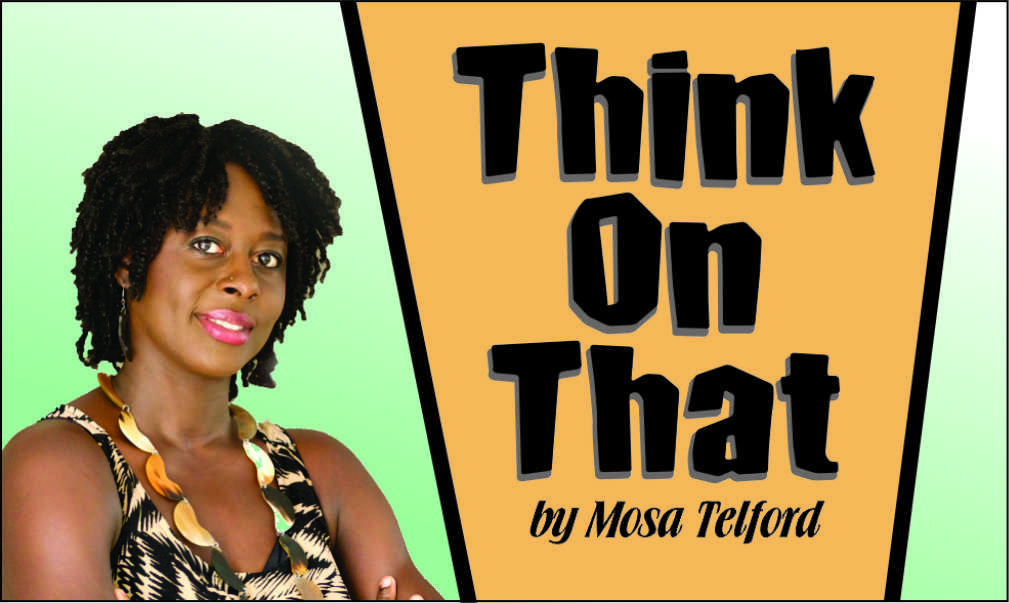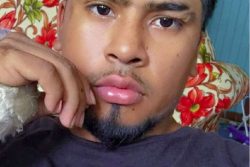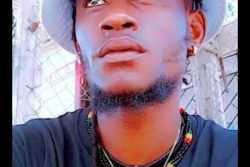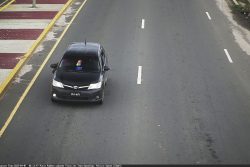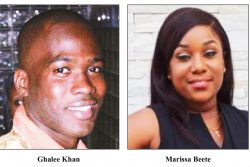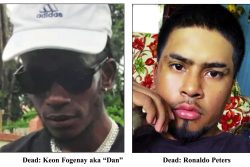The stories of young men being killed under suspicious circumstances by police are continuously being written in Guyana. They often play out in live action, captured on CCTV or cellphone cameras, except those murdered do not rise to change costumes or remove makeup. The plot is familiar – they were resisting arrest, or they were caught in the act of committing a crime, they shot at the police, or they tried to run. The scenes played out often tell us that one bullet in the arm or leg of a man to slow him down or disarm him is often not considered in these storylines. When the faces of criminals and the faces of police merge into one, a society is in trouble. Unfortunately, we passed the point of trouble ages ago and are now stuck in a cycle of crisis. We would like to believe that we have seen the worst of police murdering citizens of this country. After all there was a time when these stories made the headlines often. But the world is a cycle and in the fragile state in which we exist, where many miscreants are groomed by the negative influences in society, we are always at risk of history repeating itself.
We know it is not the entire Guyana Police Force that is complicit in crimes that are committed on citizens by police. We know that in any society a corrupt minority can overshadow the majority of the decent to create the impression of a spoiled whole. We have seen enough of citizens being killed by the police in Guyana. We remember Orin Boston, who was murdered in his home last year. There are enough fatherless children, families have been crippled and many of their cries for justice have been unanswered. It is not too much to demand a society that is uncorrupted by the nefarious activities of those who are supposed to serve and protect, and where justice is guaranteed to those who are wronged.
The cases of especially young men of African descent being murdered by members of the Guyana Police Force are perhaps rooted in anti-Blackness and criminalisation. They have been allowed to continue for too long. When one assesses these occurrences and the faces of those who murder often look like the faces of the ones they murder, the depths of self-hate, the lack of self-awareness and pride are evident and wound us deeply. Unfortunately, in many instances the murderers have been allowed to continue living unpunished. From a Shaka Blair to a Quindon Bacchus, this practice of police being able to kill citizens of this nation often unprovoked and unjustifiably has continued to happen because we the people, as usual, only rise immediately after the bloodshed and soon our discontent is muzzled by all the other noise in this society. Then when another citizen is killed the noise of discontent is heard again and the cycle repeats. There are mothers who mourn until their own deaths for their sons. There are fathers who silently cry when society has forgotten that their murdered children existed.
As a nation, we are supposed to have confidence in our police force. They are supposed to help maintain law and order, protect the ones who have been wronged and the vulnerable should be able to report their matters and be confident about justice. But instead the average Guyanese perhaps has little to no confidence in the Guyana Police Force.
Again, a family is mourning, a community is outraged, and citizens across the country are voicing their opinions on the death of another young Guyanese man at the hands of a member of the Guyana Police Force. Again, there are allegations that there are attempts to conceal the truth, for the dead can be dishonoured and the plot in this never-ending story twisted to vilify them.
Quindon Bacchus may not have been perfect, but the circumstances around his death are disturbing. The ease and thoughtlessness with which life can be taken in Guyana by members of the Guyana Police Force should worry us all. These miscreants who kill without mercy have shown their faces for too long in this country. Instead of calm and compassion they bring angst and fear to citizens. They are bullies who flash their badges and weapons and believe that gives them the power to harm or terrorize citizens without accountability or punishment. They have been emboldened by the corrupt practices of other wrongdoers in the police force for history informs them that many got away with murder or chose to be complicit in aiding to cover the truth.
There are allegations that Bacchus was killed in the process of trying to sell a gun during an intelligence-led operation involving plain clothes police. It is alleged that when the young man was trying to sell the gun an alarm was raised, he ran, shot at the police, and was killed. He was shot six times – five times in the back and once in the chest but the policeman who killed him was unscathed. One would imagine that with no policeman being shot – if the allegations that Bacchus shot at them are true – a bullet or two would be enough to shoot Bacchus in his arm or leg.
The version of the story that Bacchus was shooting at the police has been challenged. Witness statements and WhatsApp messages between Bacchus and another man revealed that the policeman who killed him was allegedly involved in a plot to entrap Bacchus because of a personal matter. According to some reports, the gun Bacchus allegedly shot at the police with had no bullets. The policeman that killed Bacchus was allegedly waiting in the trunk of the car to kill him and when Bacchus saw him, he ran for his life. It is also alleged that the gun was placed near his body after he was killed.
The ‘dunce thugs’ of Guyana are not only unemployed youth who engage in criminal activities and all manner of degeneracy. Some of these characters also disgrace the Guyana Police Force. If the allegations that are at the root of it are true – that Bacchus was killed because he was involved with a young woman who was also involved with the policeman – we all should be outraged, stand with his family and demand justice. The police should not be able to abuse their power to settle their conflicts. Bacchus was shot six times. Can we honestly say that this was not murder?
